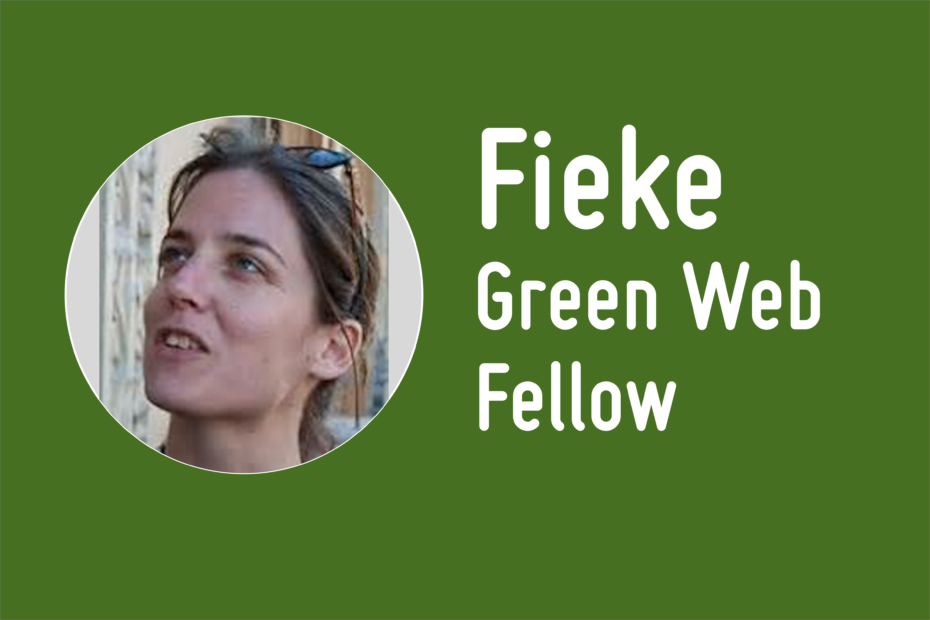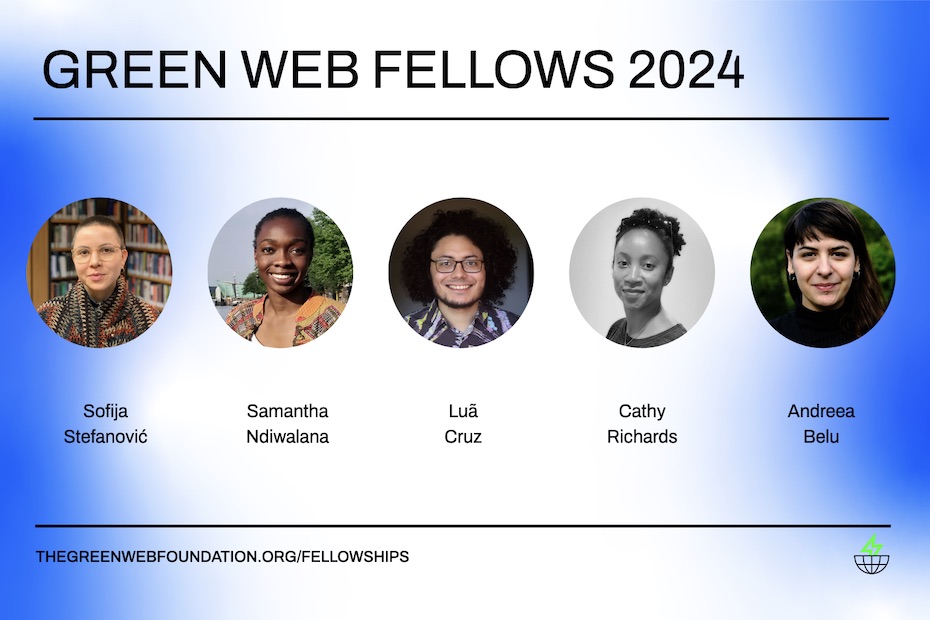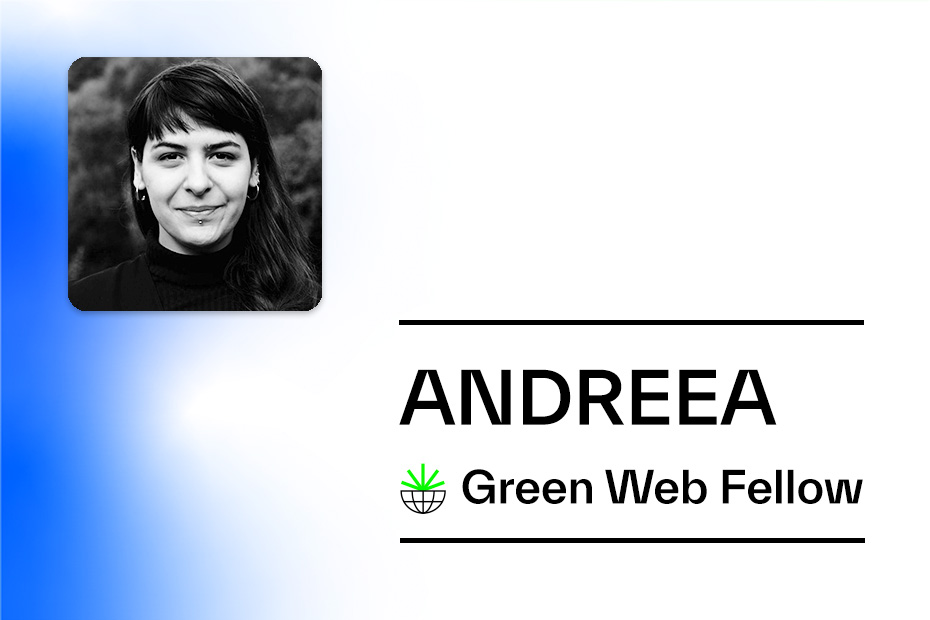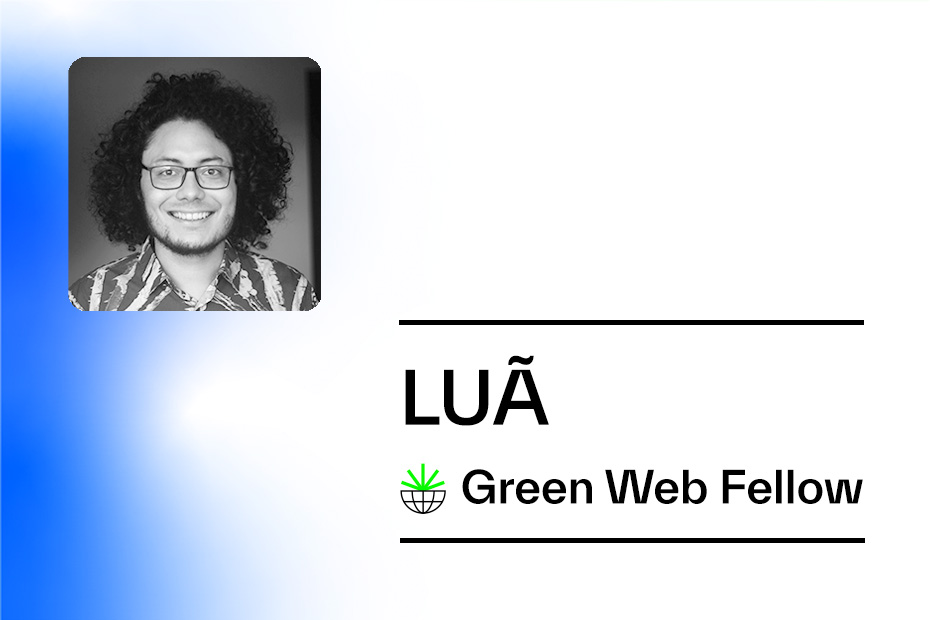In our last posts we introduced Hannah Smith and Emilio Velis, fellows the Open Green Web syllabus programme. In this post, we are thrilled to introduce Fieke Jansen, and learn more about her work.
Meet Fieke
Fieke Jansen is a tech skeptic, a researcher, educator and advocate on the impact of technology on society. She is a PhD candidate at the Data Justice Lab at Cardiff University where she explores the intersection of data justice and data-driven policing. Prior to her PhD she worked at Tactical Tech and Hivos on data, privacy, digital security and human rights. Her interest in the relationship between AI and the environment began during her Mozilla fellowship.
What does a sustainable and just internet mean to you?
A sustainable and just internet is an infrastructure that works for the benefit of people and planet and not profit. It is a structure that does not reproduce and accelerate the extractive and exclusionary logic of our capitalist society—in which power and profit end up in the hands of a small group of tech capitalist at the expense of everyone else, but especially at the expense of some communities and environments. A sustainable and just internet not only strives to be built in openness and inclusiveness, but it puts the needs of under-represented and under-served communities and the environment centre stage.
In your opinion, what are the most important things internet professionals should do to advance climate justice?
We need to learn how to contextualize our work and also that we, people with technological skills and knowledge, have dominated the social debate at the expense of more nuanced understanding of power structures. So we need to start by listening and reflecting that the solution to social and environmental problems might not be technology or more technology. When we adopt a critical perspective about society and the role technology plays in shaping it, we can start building an alternative vocabulary, technological environment, standards and policy that is aimed to support people and planet and devalues profit.
What role does policy play in your practice? How do you approach social justice and digital rights?
European technology policy debates are often top-down and abstract—discussed within the confinements of Brussels or the members states’ capitals. These generic and procedural discussion allow policy makers to set conditions in which technology can be developed and deployed. This is often very far removed from how these technologies are created and materialize in society. In addition it sets the state aside as a neutral legislator, rather then a power holder that created an enabling environment through its legislative, investment, implementing and consumer arm. I believe that we have to flip this process and shape policy from experiences and practice. For this we need to clearly understand what is at stake and who is impacted.
My approach to social justice and digital rights is that I’m from the digital rights community, and in recent years I have started engaging more with social and racial justice actors. Here, I have learned that the digital rights community should start by listening. This allows us to decenter technology in our analysis of society and unpack the power structure it is reproducing and accelerating.
What do you look forward to learning about in this fellowship program? What unique perspectives or skills would you like to contribute?
I’m looking forward to learning from people who come at this intersection from other perspectives. I’d like to learn from one another in an open sharing environment. My skills that I can contribute are an understanding of technology and its policy, experience in creating educational resources, bringing different view points together when engagement in discussion around technology, and an interest to set new agenda’s and influence upwards.
Anything else you’d like to share? About your fellowship plans, about the intersection of the internet, climate justice and openness, or your work in general?
I’m interested in a number of things. First is to learn more about the intersection of digital rights and climate justice, translate this into understandable language for the broader community and learn from those civic actors who have worked against industrial policy, for example in energy and agriculture, and to see how we can bring these learning into the critical technology space.
Thank you!
Up next: Introducing the other fellows
Five fellows are in the Green Web program, and each week we’ll introduce another one. After that, they’ll be blogging here as they chronicle their learning and experiments exploring this field.
Stay up to date
You can subscribe to our web feed with a feed reader, join our newsletter, or follow us on Twitter at @greenwebfound.



